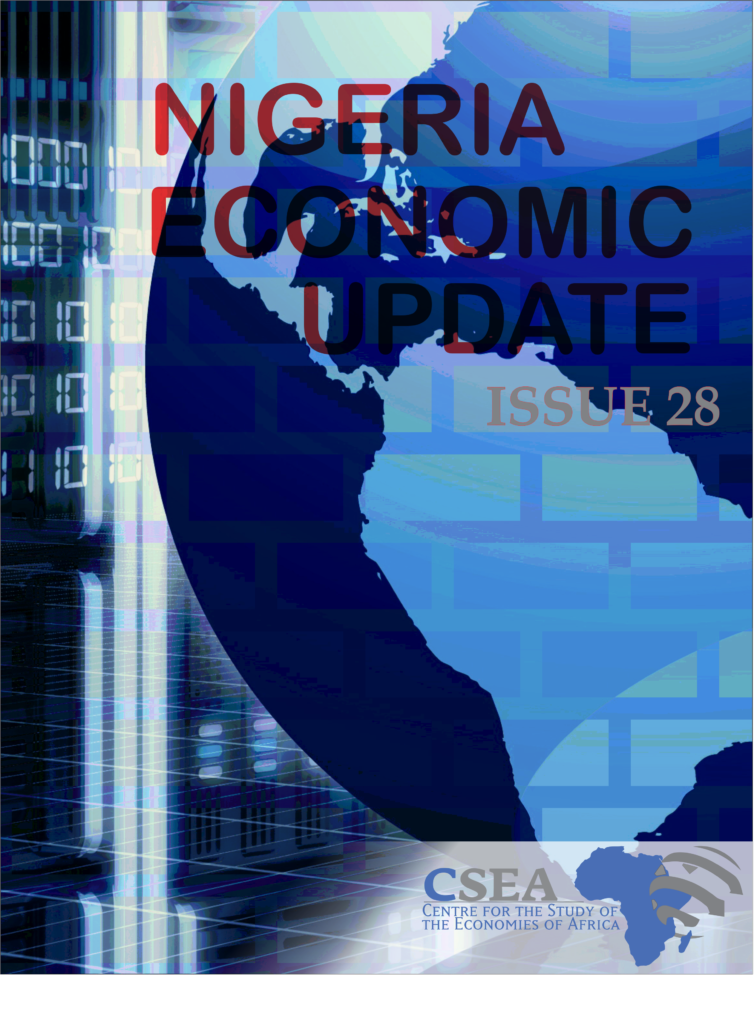Information from the Apex bank shows a likelihood of not attaining the financial inclusion target of 2020 as stated in the Nigeria Financial Inclusion Strategy (NFIS) of 2012. Precisely, the CBN’s 2016 financial inclusion report states that only 58.4 percent of Nigerian adults were financially included as against the overall financial inclusion rate targeted at 80 percent. Similarly, only about 48.6 percent use formal financial services compared to the targeted 70 percent1. Related to the targets are 22 key performance indicators that Nigeria still lags behind in. Leveraging on technology to boost financial inclusion would be a significant step forward
Macroeconomic Report & Economic Updates

August 2, 2018
Nigeria Economic Update (Issue 28)
Information from the Apex bank shows a likelihood of not attaining the financial inclusion target of 2020 as stated in the Nigeria Financial Inclusion Strategy (NFIS) of 2012. Precisely, the CBN’s 2016 financial inclusion report states that only 58.4 percent of Nigerian adults were financially included as against the overall financial inclusion rate targeted at […]
Read →
Related
Nigeria Economic Update (Issue 10)
Nigerias external reserve rose to its 19-month high in the week under review (March 3, 2017 to March 10, 2017). Precisely, the reserve improved by a daily average-percentage-increase of 0.21 percent, from $29.79 billion on March 3, 2017 to $30.04 billion on March 10, 2017 the highest level since August 2015. The rising reserve at the backdrop of steady revenue from improved domestic crude oil production/prices and forex inflows from rising exports, has reduced pressure on the Naira the naira has witnessed marginal but steady appreciation. While the recent improvement in oil revenue is a welcome development, concerted efforts need be made to develop the Non-oil sector so as to mitigate future oil revenue shocks.
Nigeria Economic Update (Issue 1)
The
external reserve increased week-on-week by 2 percent to $26.3 billion on
January 6, 2017. The increase was likely triggered by continued
marginal rise in crude oil price, which moderated oil revenue in the review
week. The recent rise in crude oil price is likely to be maintained in the
short term given the recent oil production cut deal by OPEC members. Thus, the Nigerian
government should target short term increase in crude oil production to fully
take advantage of Nigerias exemption from oil production cut and potential
rise in oil prices.
